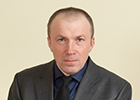Arupärimine eesti keele kui teaduskeele kasutusala ahenemise ja ülikooliõppe kvaliteedi kohta (nr 764)
Istung: XV Riigikogu, V istungjärk, täiskogu istung
Kuupäev: 2025-06-02 23:26
Osalevad Poliitikud:
Sõnavõtte kokku: 29
Koosseis: 15
Päevakorra kestus: 43m
AI kokkuvõtted: 29/29 Sõnavõtud (100.0%)
Analysis: Structured Analysis
Poliitikute Kõneaeg
Poliitikud
Analüüs
Kokkuvõte
See päevakorrapunkt käsitles 5. mail 2025 Riigikogu liikmete Jaak Valge ja Leo Kunnase esitatud arupärimist (nr 764) eesti keele kasutusala teaduskeelana ning ülikoolide õppe kvaliteediga seoses. Arupärimine on jätk 17. märtsil toimunud kahe arupärimisega ning põhiosas tõstatatakse, kas eestikeelse teaduse ja õppe ning eesti keele laienemise avalikus ruumis trendid on viimasel ajal ahenenud ning millised osad sellest saavad olla politikas ja administratsioonis paremini vastuvõetavad. Esindatavad andmed ja vaidluskohad hõlmavad doktoriõppe keeletaristust (eestikeelsed vs. ingliskeelsed kokkuvõtted ja tööd), rahvusvahelistumist, välisüliõpilaste rolli ja nende keeleõppe potentsiaali, ning riigikeele globaalse nähtavuse taset. Põhipinged tekkisid seoses sellega, kas ingliskeelne õpe suurendab rahvusvahelist nähtavust ja õppe kvaliteeti ning kas eestikeelse teaduskeele edendamine on jätkusuutlik ja piisavalt tuge saav.
Arutelus rõhutati ka vajadust lõimitud rahastamismudelite ja halduslepingute ülevaatamiseks, et tagada eestikeelse teadustöö ja eestikeelse õppe jätkusuutlikkus, ning tõstatati küsimused välisõppijate integreerimise, eesti keele omandamise ning doktoriõppe lõpetajate keeleoskuse tasemete kohta. Kriitilistele punktidele viidati statistikale, sealhulgas doktoritööde keelele, magistriõppekavade võõrkeelsele osale, ning tudengite ja tööturul osalejate keelekasutuse mõju kohta. Kokkuvõttes on päevakorrapunkti eesmärk aruandlus ja arutelu Eesti keele staatuse, teaduskeele arengu ning akadeemilise kvaliteedi jätkusuutlikkuse üle kindlate näitajate ja rahvusvaheliste sidemete valguses.
Üle vaadatud teemad hõlmasid: 1) eestikeelse teaduskeele hoidmise ja arendamise roll ning avaliku ruumi keelekasutuse mõju; 2) ingliskeelse õppimise mõju rahvusvahelise nähtavuse ja teaduslike tulemusnäitajate jaoks; 3) doktoritööde keelekujundus (eesti vs inglise keel) ning õppejõudude järelkasv; 4) välisüliõpilaste koolitamise ja integratsiooni efektiivsus ning keeleõppe võimalused; 5) kodulehtede ja info-kättesaadavuse keelevalik ning riigi keelepoliitika kuvand rahvusvahelises kontekstis.
Tehtud otsused 1
Poliitilist otsust selle arupärimise põhjal ei tehtud; arutelu jätkub ning otsusena iseloomustati, et edasine tegevus vajab täiendavat analüüsi ja kooskõlastamist erinevate ministeeriumide ning ülikoolidega. Seiratud on vajadus hinnata, kuidas riiklikud meetmed ja halduslepingud tagavad eestikeelse teaduse jätkusuutliku arengu ning vastutulekuid rahvusvahelisele kontekstile.
Aktiivseimkõneleja
Kõige aktiivsem kõneleja Riigikogu liikme Jaak Valge (pid vl68NYOImIY) esinduslik roll oli arupäriva positsiooni suunamine ja küsimuste esitamine. Tema osalus liigub väljapoole formaalset kohtu piire ning ta esindab konservatiivse või muud kui valitsuse poolt moodustatud vaateid, kuid täpne positsioon (left, right or other) on märgitud kui 'other'.
Aseesimees Toomas Kivimägi
AI kokkuvõte
Head kolleegid, oleme lõpetanud viienda päevakorrapunkti menetlemise ja jõudnud kuuenda juurde: Jaak Valge ja Leo Kunnase 5. mai 2025 esitatud arupärimine eesti keele kui teaduskeele kasutusala ahenemisest ja ülikooliõppe kvaliteedist (arupärimise nr 764), mille ettekandeks on juba liikumas Riigikogu kõnetooli hea kolleeg Jaak Valge.

Jaak Valge
Profiileerimine Fraktsiooni mittekuuluvad Riigikogu liikmedAI kokkuvõte
Jaak Valge väidab, et eestikeelse teaduskeele kasutus ning eestikeelse kõrghariduse ja avaliku ruumi keel aheneb, ning selle trendi pidurdamiseks tuleb muuta migratsioonipoliitikat ja täita ülikoolide halduslepingud, rõhutades, et kaitsmised peaksid toimuma eestikeeles, sest emakeelne kaitsmine on akadeemiliselt viljakam.
Aseesimees Toomas Kivimägi
AI kokkuvõte
Aseesimees Toomas Kivimägi tänas tubli ettekanne, väljendas lootust, et minister tuvastas küsimused või vähemalt on need paberil olemas, ning ütles, et kolmandat korda on teil võimalus haridus- ja teadusminister Kristina Kallas.
Haridus- ja teadusminister Kristina Kallas
AI kokkuvõte
Kristina Kallas väidab, et eesti keel on laienenud ja ingliskeelne õpe suurendab rahvusvahelist nähtavust ning ei ole põhjus Eesti teaduse edasiliikumise pidurdamiseks, kuid eestikeelse teaduse arendamist ning doktorantide eesti keele oskuse ja välisüliõpilaste integatsiooni jätkuvat tõstmist tuleb teha.
Aseesimees Toomas Kivimägi
AI kokkuvõte
Aseesimees Toomas Kivimägi ütles, et teil on üks minut aega ja peate andma viis vastust.
Haridus- ja teadusminister Kristina Kallas
AI kokkuvõte
Haridus- ja teadusminister Kristina Kallas ütles, et nii Tartu Ülikool kui Tallinna Tehnikaülikool tegutsevad valdkondlikud terminikomisjonid, mis aktiivselt arendavad eestikeelset teadusterminoloogiat ning selle loomist, korrastamist ja defineerimist, ning sel aastal töötab TTÜ-s kümme terminikomisjoni.
Aseesimees Toomas Kivimägi
AI kokkuvõte
Aseesimees Toomas Kivimägi ütles, et küsimused olid väga põhjalikud ja vastused samuti ning 15 minutiga ei olnud võimalik vastata, kuna aega jäi üle vaid 30 sekundit, ja ta kutsus Tõnis Lukasit lavale.

Tõnis Lukas
Profiileerimine Isamaa fraktsioonAI kokkuvõte
Doktoritööde ingliskeelne kirjutamine ja kaitsmine on rahvusvaheline tava, kuid riikide ja valdkondade lõikes on suur erinevus ning väikestes riikides see mõjutab enesekindlust ja kultuurilise identiteedi hoidmist, näites Tartu Ülikooli praktikat, kus nõutakse välisopponeerijat ning inglise keel kujundab töid ka seal, kus see ei ole vajalik, ning Lukas küsib, kas süsteemi tuleks reformida ning usaldada õppejõude rohkem kui Saksamaal.
Aseesimees Toomas Kivimägi
AI kokkuvõte
See oli lühike tänuavaldus.

Tõnis Lukas
Profiileerimine Isamaa fraktsioonAI kokkuvõte
Tõnis Lukas arutleb, kas töö on kaitsmiseks küps või mitte.
Haridus- ja teadusminister Kristina Kallas
AI kokkuvõte
Kristina Kallas rõhutas, et Eesti ja Saksamaa teadustöö ressursid ei ole võrreldavad ning humanitaar- ja keeleteaduste kvaliteet sõltub rahvusvahelisest dialoogist ning teadusartiklite kaudu toimuvast tagasisidest, mis aitab hoida Eesti keeleteaduse maailma tipptasemel.

Jaak Valge
Profiileerimine Fraktsiooni mittekuuluvad Riigikogu liikmedAI kokkuvõte
Jaak Valge rõhutab, et töö kõrvalt õppimine kahjustab õppimise kvaliteeti ning ootab ministrilt ettepanekuid, mis keskenduksid ennekõike välistudengite Eesti keele oskuse arendamisele, sest nad on siia tulnud õppima, mitte tööle.
Aseesimees Toomas Kivimägi
AI kokkuvõte
Aseesimees Toomas Kivimägi palus Jaak Valget esitada küsimuse.
Haridus- ja teadusminister Kristina Kallas
AI kokkuvõte
Kristina Kallas ütles, et välisüliõpilaste töökeeld ei ole õigustatud ning Eestis töötamise võimalus aitab parandada nende eestikeelset arengut ja suurendab pärast õpinguid Eestisse jäämise tõenäosust, sest töö seob neid Eestiga ning parandab keeleoskust, kuigi see võtab õppimisele mõnevõrra aega.
Aseesimees Toomas Kivimägi
AI kokkuvõte
See on pelgalt palve kutsuda Riina Sikkut.

Riina Sikkut
Profiileerimine Sotsiaaldemokraatliku Erakonna fraktsioonAI kokkuvõte
Riina Sikkut küsis OSKA raportite põhjal järgmise kümne aasta töökäte vajaduse täitmise plaanide kohta ning kas kavatsetakse vastu võtta välisüliõpilasi ja õpetada neile õpingute jooksul eesti keelt, et nad diplomi saamisel saaksid erialaselt rakendada.
Haridus- ja teadusminister Kristina Kallas
AI kokkuvõte
Kristina Kallas ütles, et hetkel puudub plaan meeletult välismaalasi sisse tuua, kuid mõnel erialal arendatakse paindlikke õppekavasid välismaalastele, näiteks Tartu Tervishoiu Kõrgkoolis pakutakse magistriõppe õppekava juba Eestis töötavatele radioloogiatehnikutele, mille kõrval on ka võimalus töötada ja eestikeelt omandada.
Aseesimees Toomas Kivimägi
AI kokkuvõte
Kõne on lihtsalt palve kutsuda esinema Leo Kunnas.

Leo Kunnas
Profiileerimine Fraktsiooni mittekuuluvad Riigikogu liikmedAI kokkuvõte
Ta jätkab Jaak Valge küsimust ja küsib, millised konkreetsed piirangud on Eestis välisüliõpilaste töö suhtes võrreldes Eesti üliõpilastega.
Haridus- ja teadusminister Kristina Kallas
AI kokkuvõte
Peamine piirang on see, et välisüliõpilase Eestis elamisluba põhineb õpingutel, mitte töötamisel; kui ta tegeleb ainult tööga, ei õpi ja mahajääb õpingutega, elamisluba tühistatakse.
Aseesimees Toomas Kivimägi
AI kokkuvõte
Toomas Kivimägi tänas publikut, teatas, et küsimusi enam ei ole, avas läbirääkimised ja ütles Jaak Valgele, et loengu teine osa algab.

Jaak Valge
Profiileerimine Fraktsiooni mittekuuluvad Riigikogu liikmedAI kokkuvõte
Jaak Valge ütles, et viimase viie aasta trend näitab eestikeelse kasutusala ahenemist ning inglise keele omaksvõtt ei ole parandanud akadeemilist edu, tuues näitena Tartu Ülikooli languse Leiden Rankingis ja rõhutades, et kui teadus muutub inglise keelseks, muutub eestikeelne teadus avalikkusele kättesaamatuks ning tuleb tagada eesti keele kasutus ja erialaterminoloogia.
Aseesimees Toomas Kivimägi
AI kokkuvõte
Ta ütles, et antakse veel kolm minutit.

Jaak Valge
Profiileerimine Fraktsiooni mittekuuluvad Riigikogu liikmedAI kokkuvõte
Jaak Valge kinnitas, et välisüliõpilased ei taga kõrgemat õppetaset ning tuleb suurendada eestikeelse keeleõppe ja transiitkoolituse kättesaadavust, sest OSKA ja Statistikaameti andmed ning Riigikontrolli järeldused näitavad, et suur osa välistudengitest lahkub Eestis kolme kuni viie aasta jooksul keelebarjääri ja töövõimaluste puudumise tõttu, ning ta kritiseeris venekeelse veebilehe pikaajalist kavatsust, mis meenutab Venemaa haridusministeeriumi.
Esimees Lauri Hussar
AI kokkuvõte
Esimees tänab ja kinnitab, et kõnesoove on endiselt olemas, ning kutsub Tõnis Lukast kõne pidama, millele Tõnis saalist midagi ütleb.

Tõnis Lukas
Profiileerimine Isamaa fraktsioonAI kokkuvõte
Tõnis Lukas palub kuulajatele veel kolm minutit juurde.
Esimees Lauri Hussar
AI kokkuvõte
Esimees Lauri Hussar palub kolm minutit lisäaega.

Tõnis Lukas
Profiileerimine Isamaa fraktsioonAI kokkuvõte
Tõnis Lukas rõhutas, et eestikeelse kõrghariduse ja teaduse jätkusuutlikkus sõltub eestikeelse keelekasutuse tagamisest nii doktorantide keeleoskuse ja halduslepingute keelenõuete kui ka õppejõudude eestikeelse tööjuhendamise kaudu, ning et inglise keele domineerimine ei taga kvaliteeti ning 19 eestikeelsest doktoritööst 258-st viimase aasta kohta näitab vajadust suurendada eestikeelset teadust ja kaitsta selle rahvusvahelist taset, et alaväärsusest tingitud hoiakud ei pärsiks eestikeelse õppe ja kultuuri arengut.
Esimees Lauri Hussar
AI kokkuvõte
Esimees Lauri Hussar teatas, et kõnesoove ei ole enam, ning suleb läbirääkimised ja lõpetab selle päevakorrapunkti käsitlemise.